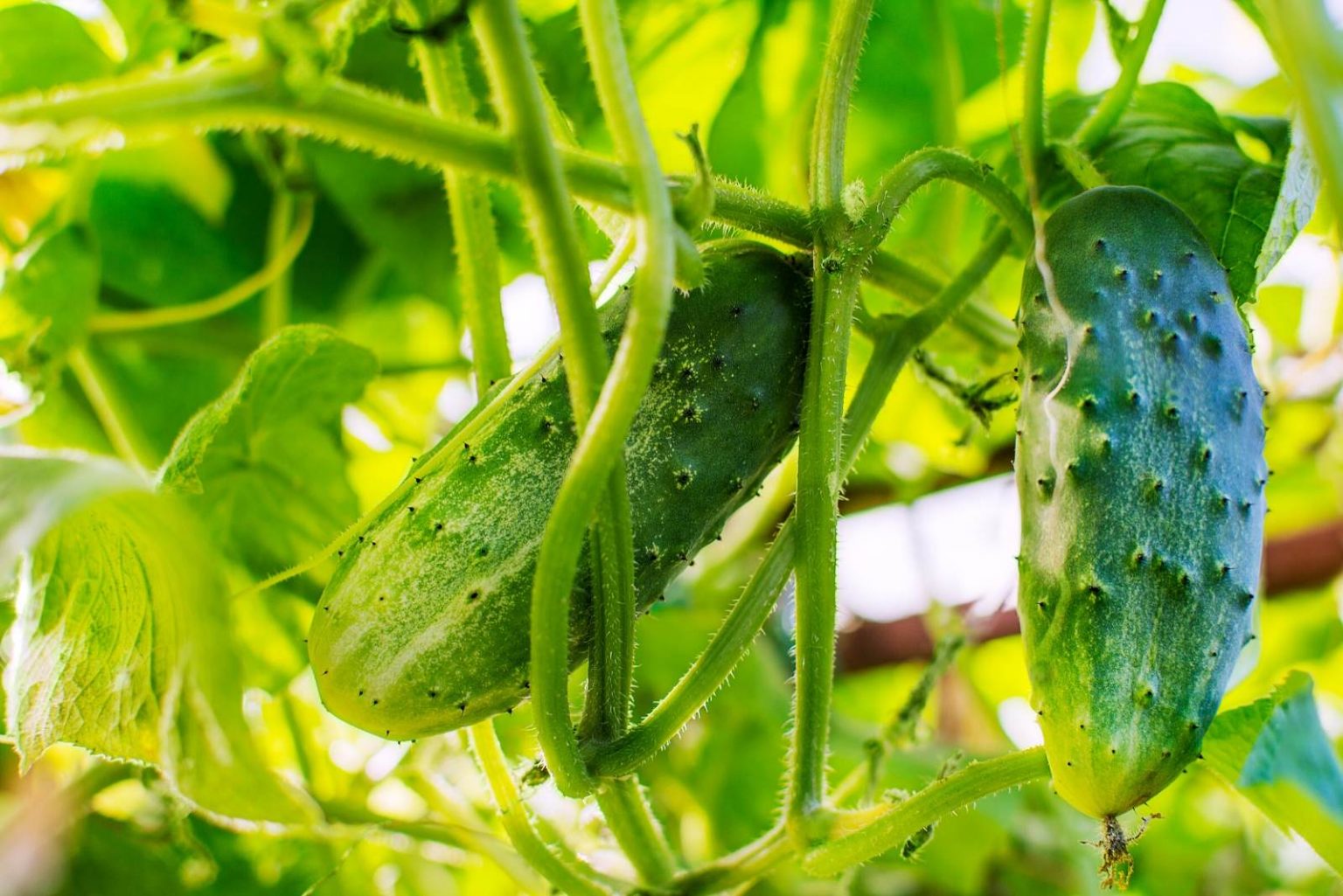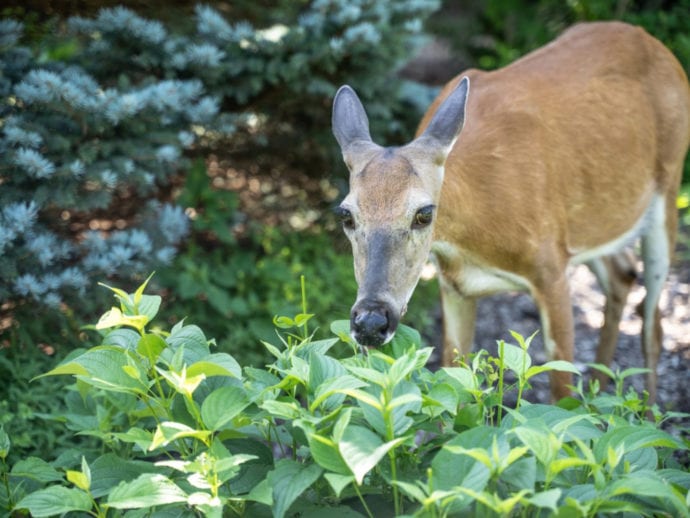As herbivores, deer feed primarily on greens and vegetation. They will take advantage of easy access to plants, especially favorites like fruits and vegetables. Backyard gardens provide a bounty that deer cannot resist. Landscaping with an abundance of naturally growing plants interspersed with garden beds yields a veritable deer buffet. Lacking the inhibition of their wild counterparts, urban and suburban deer feel comfortable grazing close to human dwellings.
Why Are Deer Attracted to Gardens in the First Place?
Deer have broad palates when it comes to garden crops. A cucumber vine laden with juicy fruit resembles a salad bar to a hungry deer. Though not at the top of their list of favorite nibbles, most deer will sample cucumbers. Some may even develop a taste for the melons and make cucumber plants a preferred snack. When more delectable options are scarce, deer forage on whatever greens abound. They will eat cucumber foliage and vines and also take bites of the fruit itself. Extremely hungry deer may decimate cucumber plants altogether.
Signs That Deer Have Been Feeding in Cucumber Patches
It is not difficult to discern whether deer have made cucumber plants a target. Their telltale signs reveal their nighttime feeding patterns. In the morning, damaged plants tell the tale through these giveaways:
- Chewed or torn leaves
- Nipped buds and broken vines
- Partially eaten melons with deer teeth marks
- Doe and fawn-size hoof prints and trails through planting beds
In severe cases, deer may destroy entire plants by feeding on the main stems and vines. Finding broken, trampled cucumber vines is a surefire clue that deer have helped themselves to a garden feast.
Relevant post: Do deer eat rhubarb plants ?
Which Deer Are Most Likely to Become Garden Raiders?
Urban deer that grow accustomed to coexisting with humans tend to invade gardens more often than their rural cousins. Bucks, does, and even cute little fawns learn that backyard bounty offers foods without much risk. These deer lose their inborn fear of people and soon associate gardens with an easy meal.
In rural areas, deer raids occur most frequently during harsh winters when wild food supplies grow scarce. Both males and females venture close to farmhouse and barnyard when pickings are slim in the woods and fields. This Seasonal hunger overcomes their natural wariness of open areas near human activity.
How to Minimize Damage from Hungry Deer ?
Once deer discover the treats that gardens offer, they return often to dine. Protecting cucumber and other vegetable plants requires diligent measures tailored to the backyard environment. Deer deterrent options include:
- Fencing around gardens with mesh tight enough to keep out small deer heads.
- Motion-activated water spray devices.
- Lights triggered by deer presence.
- Repellents made with smelly substances like garlic, eggs, soap.
- Scarecrow decoys moved frequently to appear “real”.
- Dogs stationed in yards to scare deer with barking.
- Coyote or wolf urine used as scent repellents.
Ideally, fencing provides the most consistent protection but requires proper installation and maintenance. Non-fence methods work best when used in combination and moved periodically so deer don’t become accustomed.
Can Hungry Deer Be Trained to Avoid Cucumbers and Other Garden Produce?
Deer are incredibly adaptable creatures and learn rapidly through negative experiences. They tend to avoid places where they encounter anything unpleasant.
Gardens protected by tall fencing with a locked gate, for example, teach deer that they cannot access the plants within.
Use of water spray devices, lights, and dogs when deer approach cucumber patches trains them to associate that area with scary things.
Over time, repeated negative experiences result in deer avoidance. But deer have long memories, so garden gates must stay locked and protective measures remain in place to ensure deer don’t return and undo that training.
In Summary
Cucumbers and other garden bounty seem irresistible to deer, especially those dwelling near suburban neighborhoods. Protecting cucumber vines and melons from deer damage involves commitment. With consistency, deer can be discouraged from helping themselves to backyard cucumber patches. But letting down your guard in autumn almost guarantees hungry deer will return and join the garden feast.



